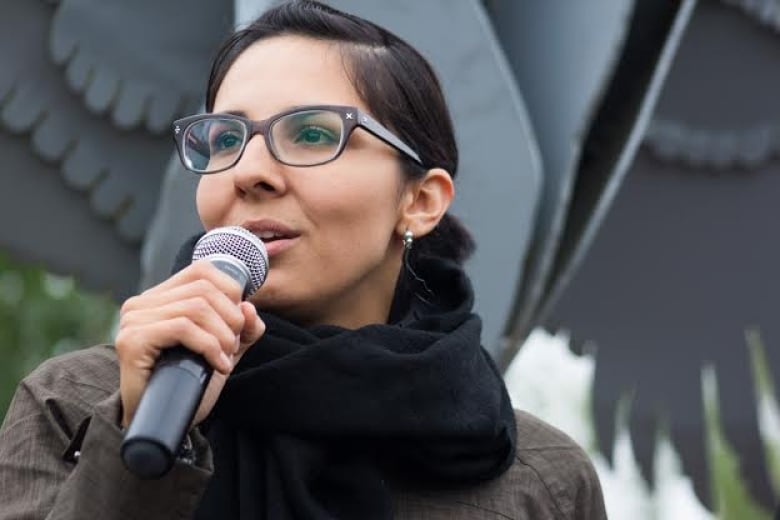Neil Young tour: 5 facts about the First Nation he's singing for
Athabasca Chipewyan First Nation has spent millions in legal fees fighting oilsands development

Veteran Canadian rocker Neil Young will perform in Winnipeg tonight, the second show on his Honour the Treaties tour to help a a small Alberta First Nation involved in a big battle against tarsands development.
The tour, which launched earlier this week in Toronto, is raising money for the Athabasca Chipewyan First Nation (ACFN), which aims to protect its land against oilsands development.
- Neil Young benefit tour inspires ex-oilsands worker
- Jackpine Mine will destroy wetlands and wildlife, First Nations say
- Visit cbc.ca/aboriginal
Here are five facts about the Alberta First Nation:
1. In Treaty 8 territory
The ACFN has about 1,200 members, with more than half living off the reserve.
The band has eight reserves around the southern shores of Lake Athabasca, with a combined area of 34,767 hectares, but considers its traditional territory to encompass all of Treaty 8. Ancestors signed Treaty 8 at Fort Chipewyan in 1899.
ACFN members speak Dene and call themselves K’ai Taile Dene, meaning “people of the land of the willow.”
2. Receives no federal funding

The band says the agreement contained a clause that would have forced it to abide by existing and future legislation — something it says would have violated the government’s constitutional and legal obligations to consult and accommodate treaty and aboriginal rights.
By not signing the agreement, the band is losing about $1.6 million from this year’s budget.
3. Relies largely on economic development
ACFN owns and operates several business entities under an umbrella organization called ACDEN, made up of 17 businesses that largely provide services to the oil and gas industry.
ACDEN calls itself "one of Canada's most successful Aboriginal enterprises." Its first company was started in 1994 with just 10 employees and now there are more than 3,000.
Last year, ACDEN generated between $200 million and $250 million in revenue.
4. Spends millions fighting oilsands
“We’ve lost a lot of litigation, but it evens out because the victories we feel have really changed things drastically in the way the oilsands are developed,” says Eriel Deranger, communications co-ordinator and ACFN member.
5. Commits to other challenges
In 2014, ACFN will likely participate in two hearings — for the Pierre River mine and for the Teck Resources Frontier Mine.

“We are probably looking at millions of dollars in legal fees for just 2014.”
But Deranger says despite the cost, its a worthwhile fight.
"We want to conserve and protect our region. We want to ensure that our river systems, our wildlife and our people are healthy not just now but into the future. And that my children can experience the land and the river systems and know what it means to be a Denesuline woman or a Denesuline man, and that won’t happen if we allow the government to develop the way that they want it to."

